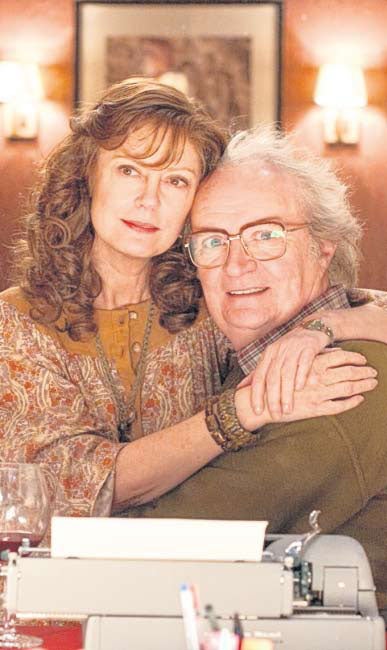Cloud Atlas, Toronto Film Festival

A bold, ambitious and fun attempt to adapt David Mitchell’s time-jumping novel, Cloud Atlas is a return to form for the Wachowskis. The novel contains the same big idea that commonly crops up in the Wachowski oeuvre, whether as director or producers, that humans should look beyond the physical realm and understand that space and time are malleable.
Whether that’s true or not is arguable, but one thing’s for sure, it does make for fantastical movies – not even Terry Gilliam in his pomp was this grandiose. As with the work of Gilliam, the Wachowskis often have a problem with self-control.
The success of the original Matrix movie has been like a poisoned chalice as it gave them final cut on all their projects and left to their own film-making devices their work has often been self-indulgent and unintelligible.
Here they seem anchored by the use of Tom Tykwer as co-director, whose film Run Lola Run successfully told a tale from various perspectives and Mitchell’s text. Six separate through-the-ages stories are conjoined: a sea adventure from the mid 19th century, a 1930s meeting of composers, a journalist investigating corrupt corporations in the 1970s, a present day tale of an author publicly murdering a critic, a futuristic tale of rebellion in a totalitarian society and an undefined postapocalyptic dystopia.
The common theme is that each tale is about a search for liberty and truth. The big difference from the novel is in the structure. While the book tells each story consecutively and then as stories within stories, the movie crisscrosses the tales jumping through space and time at will.
Tom Hanks, Halle Berry, Hugh Grant, Hugo Weaving, Jim Broadbent, Ben Whishaw, Susan Sarandon, Doona Bae, Jim Sturgess and Keith David all play multiple roles in the film. The action starts with a shot of the stars before focusing on a mumbling man lost at sea.
Underneath all the prosthetics seems to be Tom Hanks? Part of the fun of this movie adaptation is trying to work out what star name is under the make-up. At one point, Berry shows up as a white aristocratic Jew, Whishaw as a blonde woman.
As a device, the multiple roles allow the viewer to immediately know which are the heroes and villains. Ultimately, this is a film about ideas rather than plot. It’s a tricky marriage between blockbuster action and textbook philosophy.
Although the space opera is occasionally bumpy and disorientating, the end result is intoxicating.
Join our commenting forum
Join thought-provoking conversations, follow other Independent readers and see their replies
Comments
Bookmark popover
Removed from bookmarks